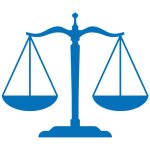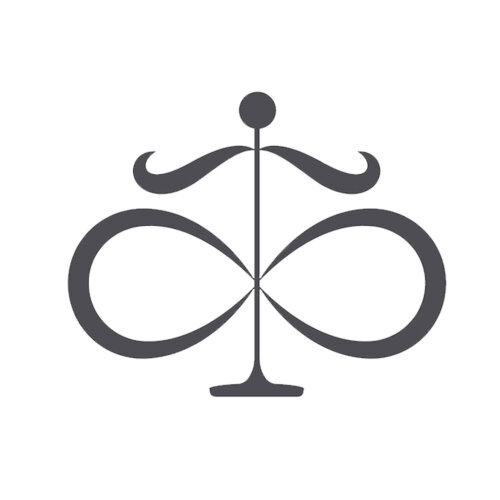Best Financial Services Regulation Lawyers in Dakar
Share your needs with us, get contacted by law firms.
Free. Takes 2 min.
List of the best lawyers in Dakar, Senegal
About Financial Services Regulation Law in Dakar, Senegal
Financial Services Regulation in Dakar, Senegal concerns the set of laws, rules, and regulatory bodies that oversee banking, insurance, securities, microfinance, and related financial institutions. It is designed to protect consumers, ensure financial stability, prevent financial crimes like money laundering, and foster confidence in the financial system. Senegal works within the West African Economic and Monetary Union (WAEMU or UEMOA) framework that establishes common regulations and agencies, but has its own national laws and regulatory authorities as well. Dakar, as the capital and financial hub of Senegal, is central to the country’s financial sector operations and regulatory enforcement.
Why You May Need a Lawyer
Navigating Financial Services Regulation in Senegal can be complex. Individuals and organizations may need legal assistance for a variety of reasons such as:
- Obtaining licenses to operate as a bank, insurance company, or financial institution
- Complying with anti-money laundering and counter-terrorist financing regulations
- Responding to regulatory investigations or enforcement actions
- Drafting and reviewing compliance policies and internal controls
- Advising on cross-border financial transactions and investments
- Handling disputes with financial service providers or clients
- Mergers, acquisitions, or restructuring within the financial sector
- Understanding obligations under local and UEMOA financial regulations
In these situations, a lawyer with expertise in financial services regulation can provide guidance, protect your rights, and ensure compliance with current laws.
Local Laws Overview
Financial services in Dakar are governed by both national and regional laws, primarily derived from:
- The Banking Law (Loi Bancaire) and related UEMOA directives
- Insurance Code and rules established by the Inter-African Conference on Insurance Markets (CIMA)
- Central Bank of West African States (BCEAO) regulations and monetary policies
- Financial Markets Council (CREPMF) standards for capital markets and investments
- Anti-Money Laundering (AML) and Counter Financing of Terrorism (CFT) regulations enforced by the CENTIF
Licensed financial institutions are subject to rigorous requirements regarding capitalization, transparency, client due diligence, reporting, and governance. There are also special rules for microfinance, e-money issuers, and fintech, which seek to balance innovation with consumer protection. Regulatory compliance is mandatory and non-compliance can result in fines, license revocation, or legal action.
Frequently Asked Questions
What types of financial institutions are regulated in Senegal?
Banks, insurance companies, microfinance institutions, e-money providers, investment firms, and payment service providers are all regulated under Senegalese law and subject to oversight by relevant authorities.
Who are the main financial regulators in Dakar?
The Central Bank of West African States (BCEAO), Banking Commission of the UEMOA, Insurance Directorate (Direction des Assurances), CREPMF, and CENTIF are key regulators in Dakar.
Is a license required to offer financial services?
Yes, offering banking, insurance, financial advisory, money transfer, or microfinance services requires obtaining proper licenses from the appropriate regulatory body.
What are the main compliance obligations for financial institutions?
Key obligations include customer identification and due diligence, suspicious transaction reporting, maintaining adequate records, capital requirements, anti-money laundering measures, and ensuring transparency in operations.
How can a foreign investor or company enter the Senegalese financial market?
Foreign investors must apply for the necessary regulatory approvals, satisfy minimum capital and governance standards, and may need to partner with local entities depending on the service involved.
What happens if a financial institution violates local regulations?
Violations can result in sanctions including fines, suspension, revocation of licenses, mandatory corrective actions, or referral for criminal prosecution depending on the severity of the offense.
Are there special rules for digital finance and fintech in Senegal?
Yes, regulations for electronic money and digital payment systems are evolving, with the BCEAO issuing specific guidelines to ensure security, risk management, and fair competition for fintech companies.
Can individuals file complaints against financial institutions?
Yes, individuals can file complaints directly with the institution, and if unresolved, escalate to the relevant regulator or Ombudsman. There are mechanisms for dispute resolution and consumer protection.
How does anti-money laundering regulation work in Senegal?
Financial institutions must identify clients, monitor transactions, report suspicious activities to the CENTIF, and follow strict protocols to prevent, detect, and report money laundering or terrorism financing.
Where can I find up-to-date information on regulatory requirements?
Regulatory requirements and updates are published by the BCEAO, Insurance Directorate, CREPMF, and Banking Commission. Legal professionals and specialized consultants also provide guidance on compliance.
Additional Resources
Several organizations and authorities provide information and support on financial services regulation in Dakar:
- Central Bank of West African States (BCEAO)
- Banking Commission of the UEMOA
- Insurance Directorate (Ministry of Finance and Budget)
- Central Office for Suspicious Transactions Reporting (CENTIF)
- CREPMF - Council for the Regulation of Financial Markets for the West African Monetary Union
- Senegalese Association of Banks and Financial Institutions
- Chamber of Commerce, Industry and Agriculture of Dakar (CCIAD)
- Licensed legal professionals and law firms specializing in financial regulation
Next Steps
If you need legal assistance in Financial Services Regulation in Dakar, you should:
- Identify your specific needs, such as licensing, compliance advice, or dispute resolution
- Gather all relevant documents and information about your organization or the issue at hand
- Consult with a lawyer experienced in Senegalese and UEMOA financial regulation
- Schedule a consultation to assess your legal standing and develop a compliance or defense strategy
- Follow legal recommendations and maintain open communication with your counsel
- Stay informed about regulatory updates and ongoing compliance requirements
Taking these steps will help you navigate the complex regulatory environment effectively and minimize potential legal risks in the financial services sector in Dakar, Senegal.
Lawzana helps you find the best lawyers and law firms in Dakar through a curated and pre-screened list of qualified legal professionals. Our platform offers rankings and detailed profiles of attorneys and law firms, allowing you to compare based on practice areas, including Financial Services Regulation, experience, and client feedback.
Each profile includes a description of the firm's areas of practice, client reviews, team members and partners, year of establishment, spoken languages, office locations, contact information, social media presence, and any published articles or resources. Most firms on our platform speak English and are experienced in both local and international legal matters.
Get a quote from top-rated law firms in Dakar, Senegal — quickly, securely, and without unnecessary hassle.
Disclaimer:
The information provided on this page is for general informational purposes only and does not constitute legal advice. While we strive to ensure the accuracy and relevance of the content, legal information may change over time, and interpretations of the law can vary. You should always consult with a qualified legal professional for advice specific to your situation.
We disclaim all liability for actions taken or not taken based on the content of this page. If you believe any information is incorrect or outdated, please contact us, and we will review and update it where appropriate.









